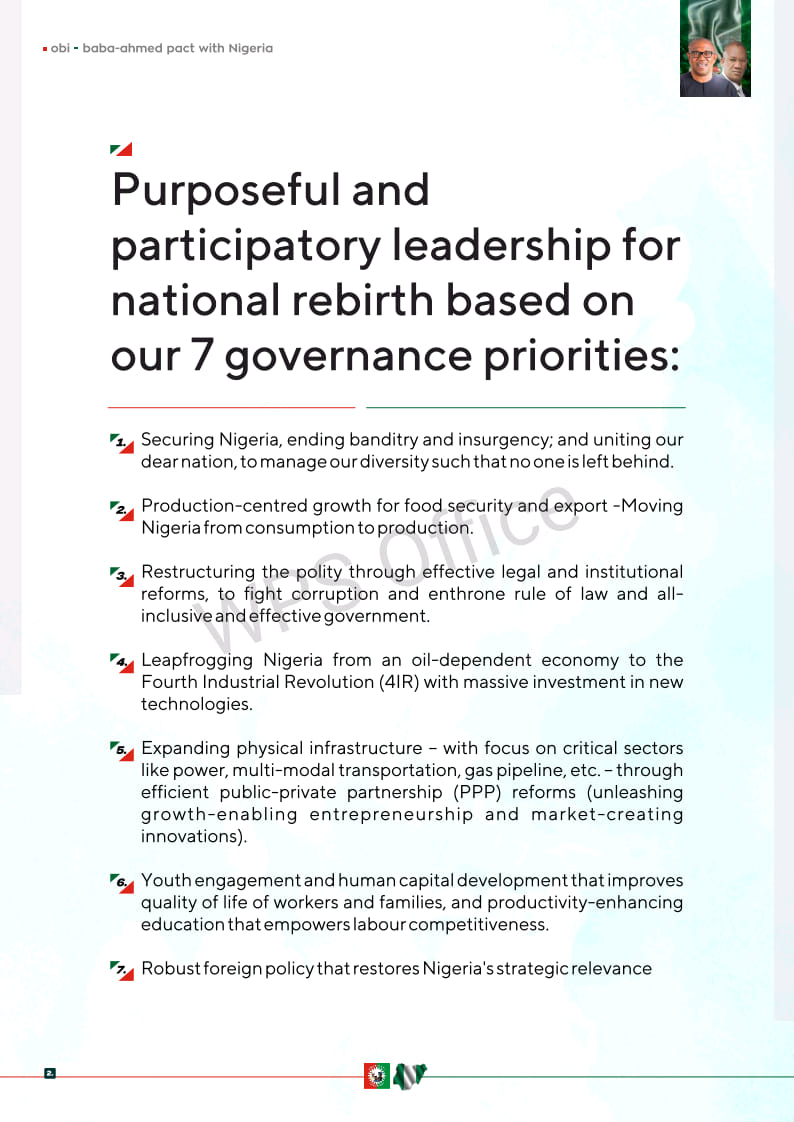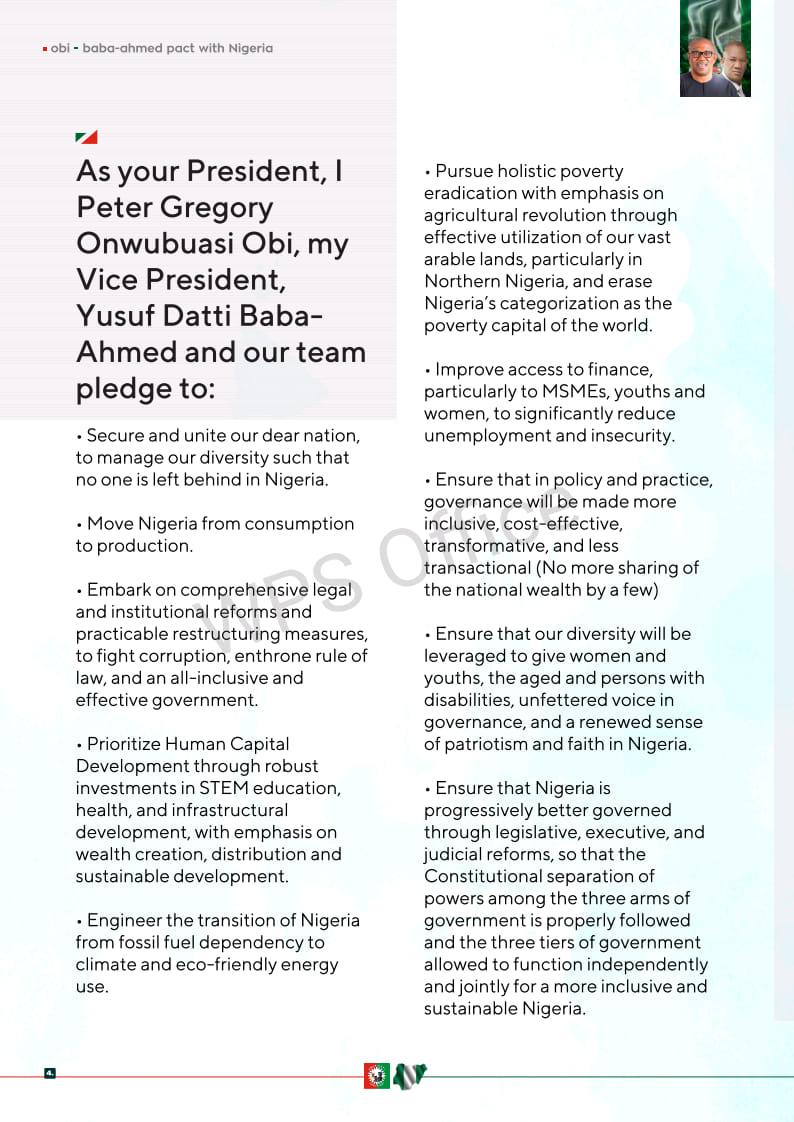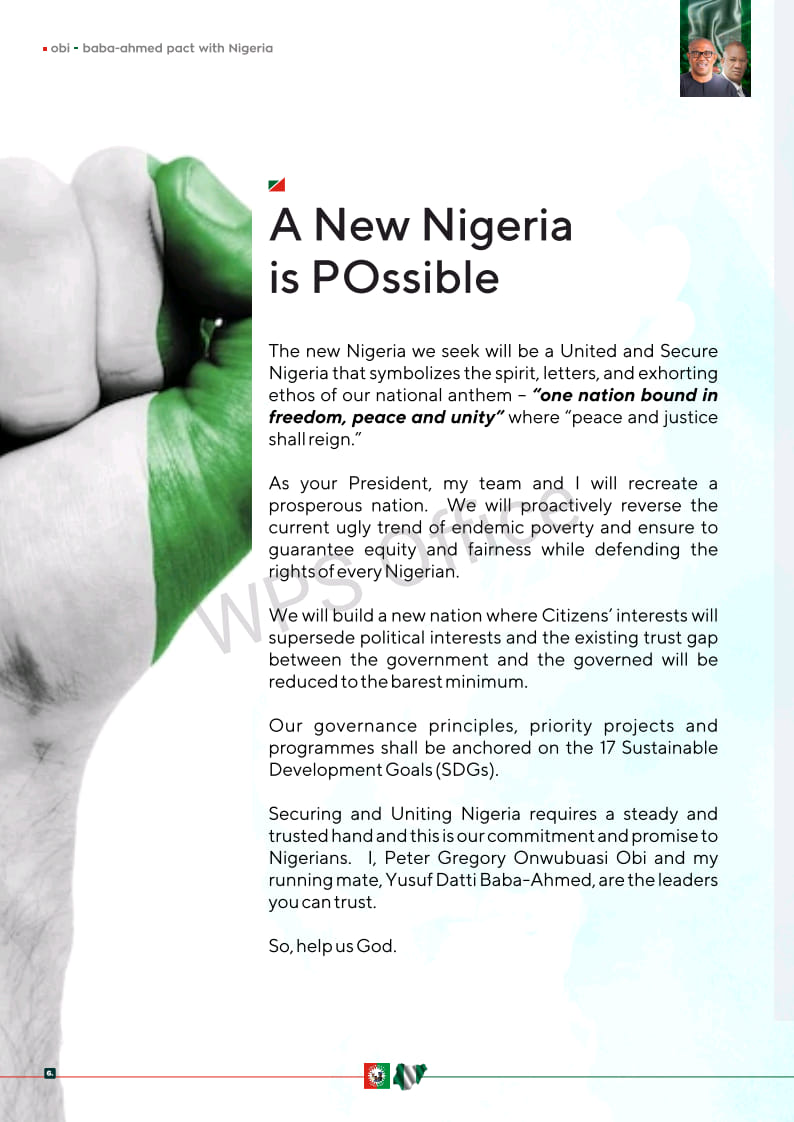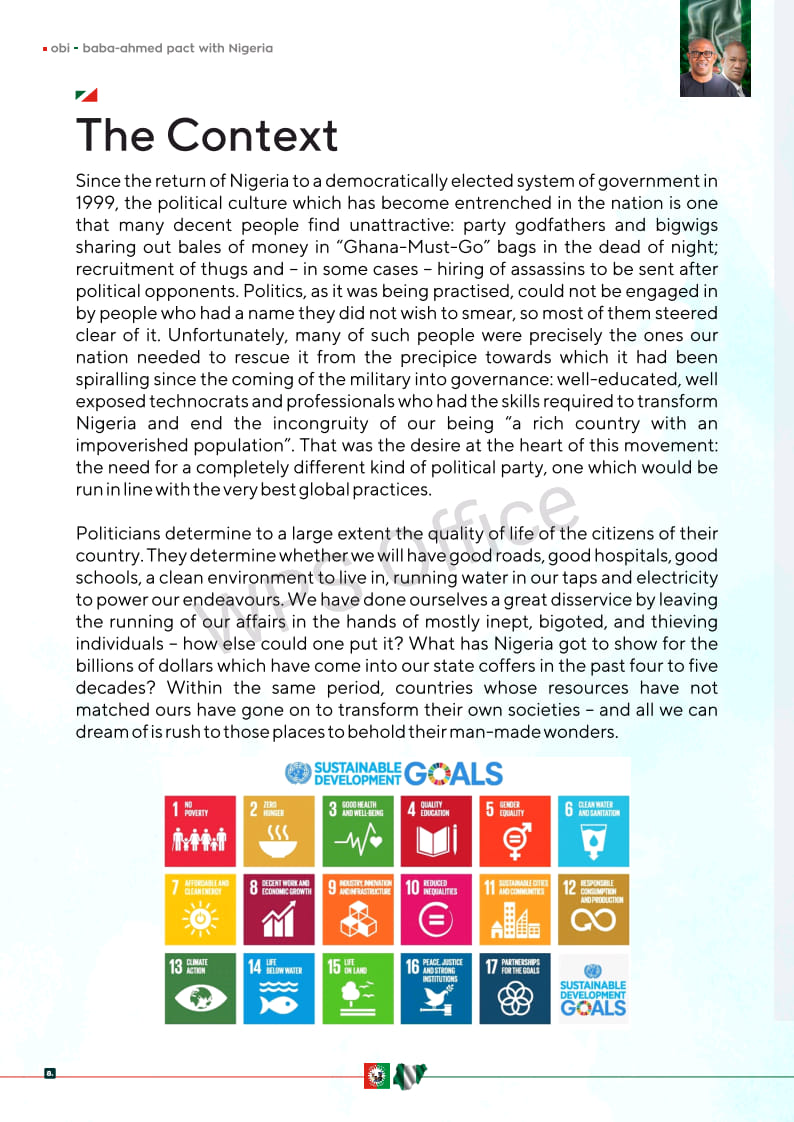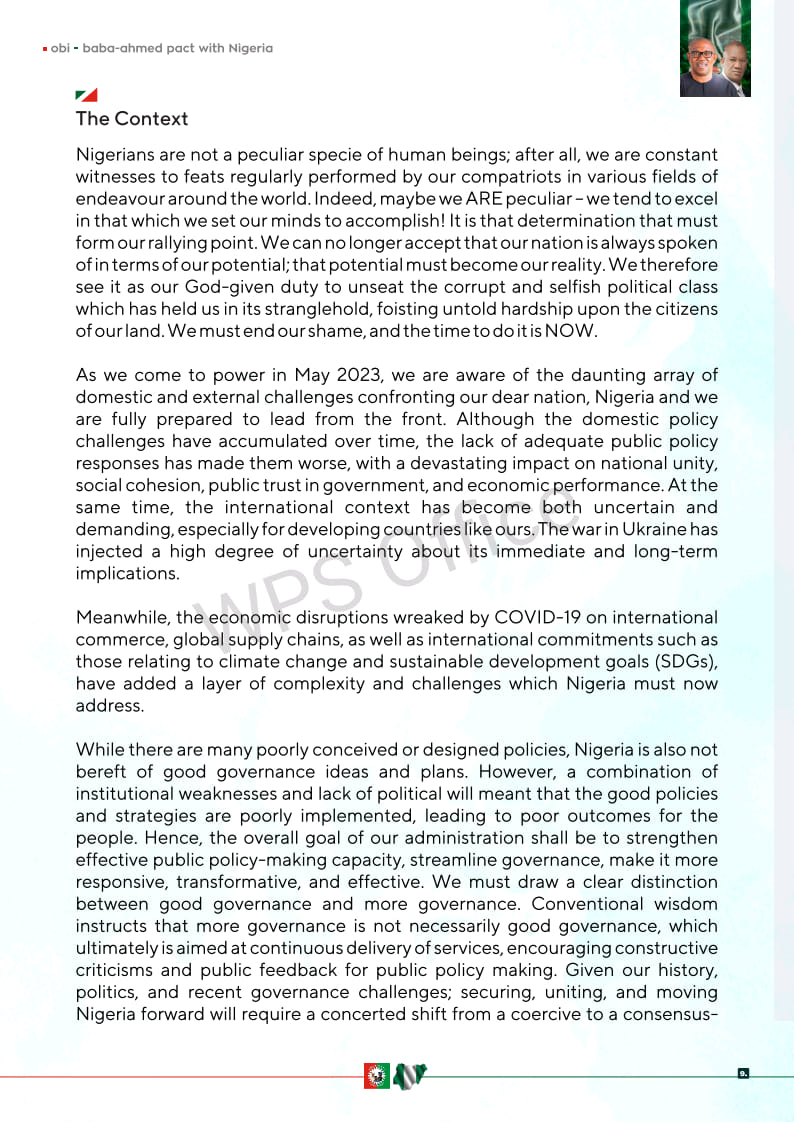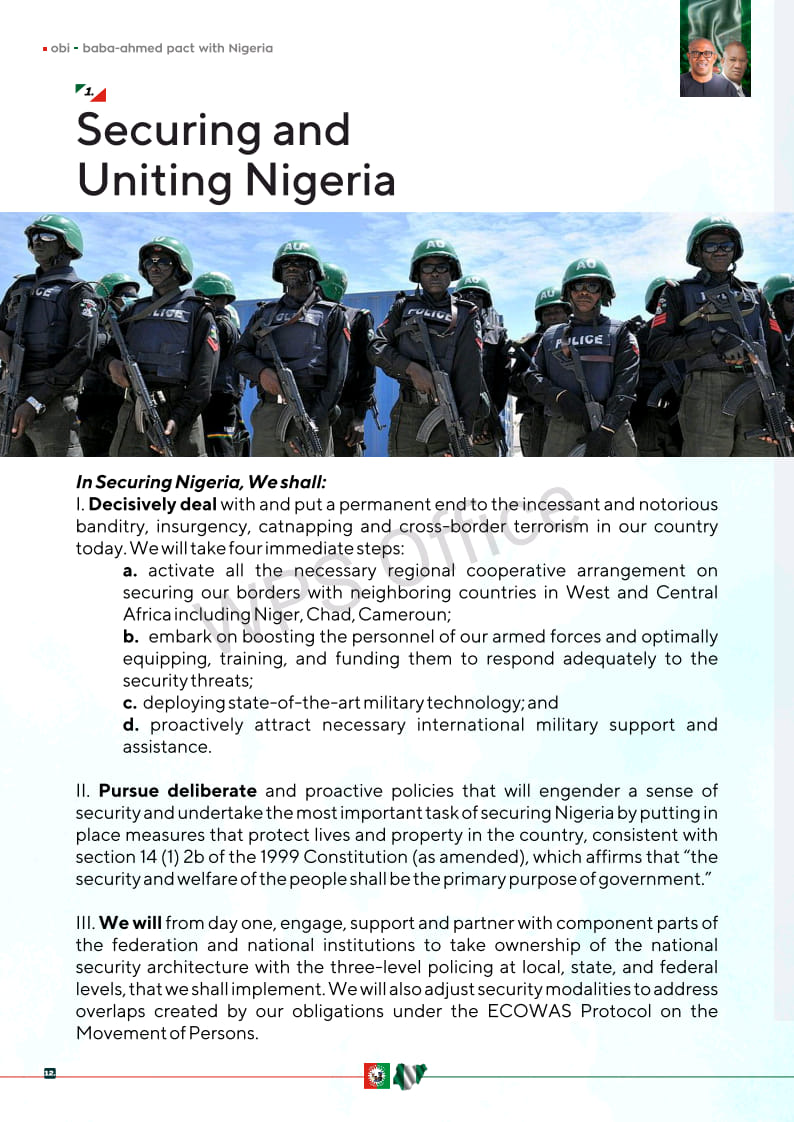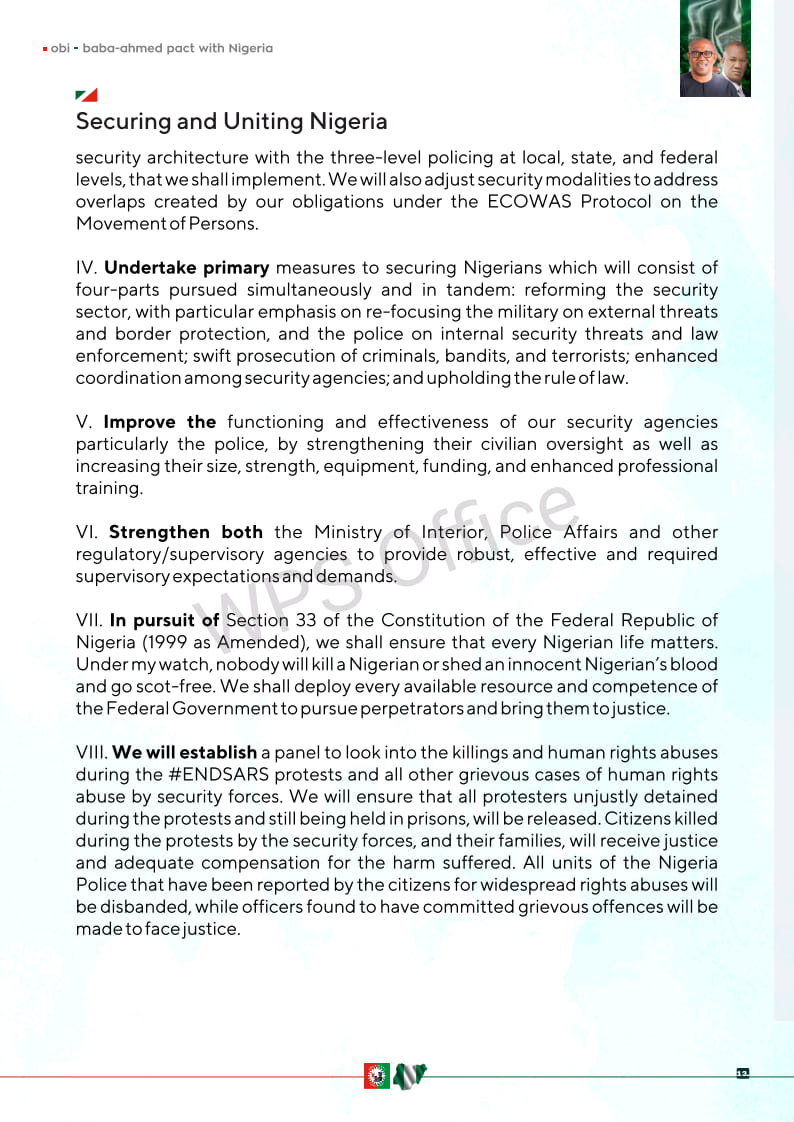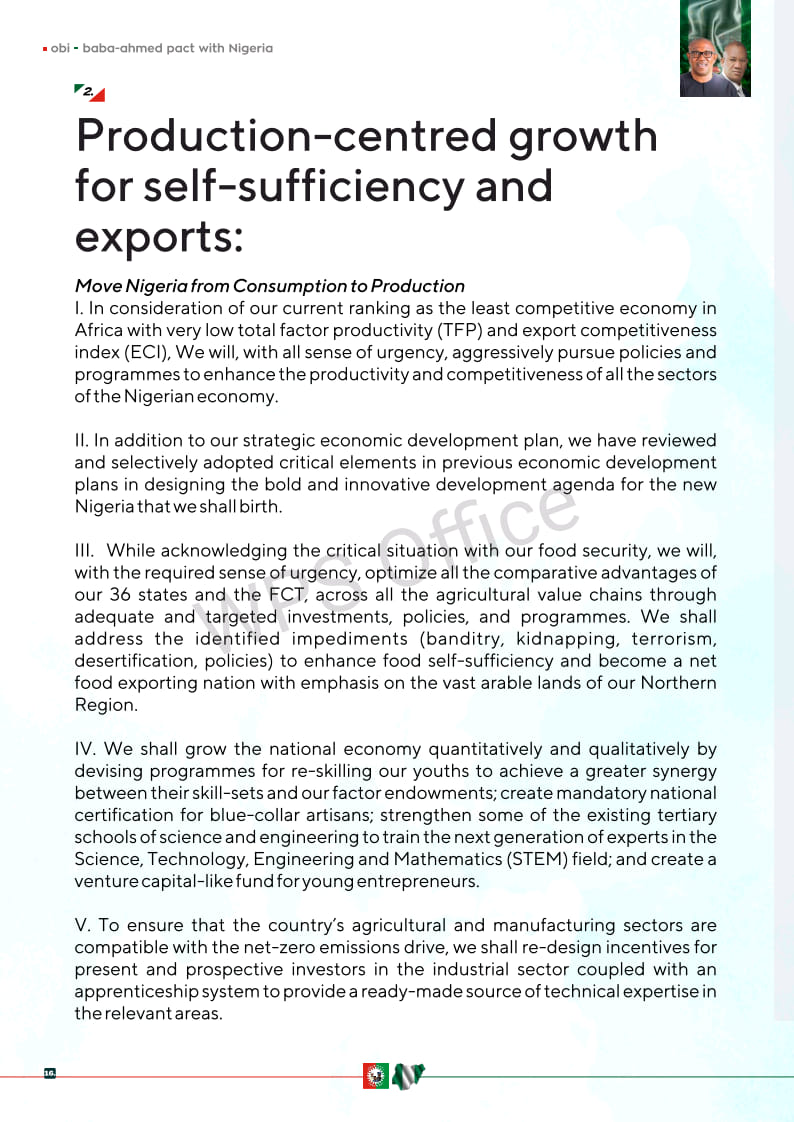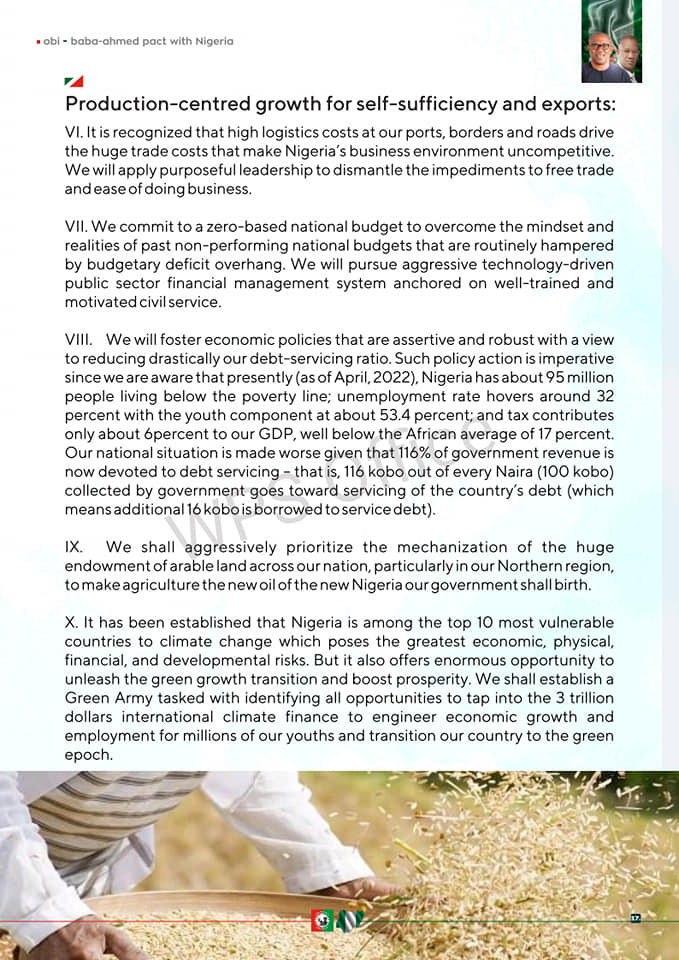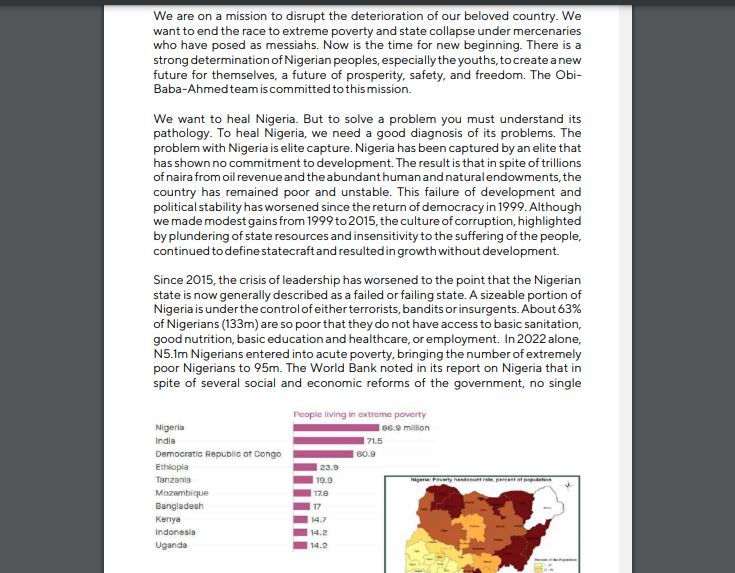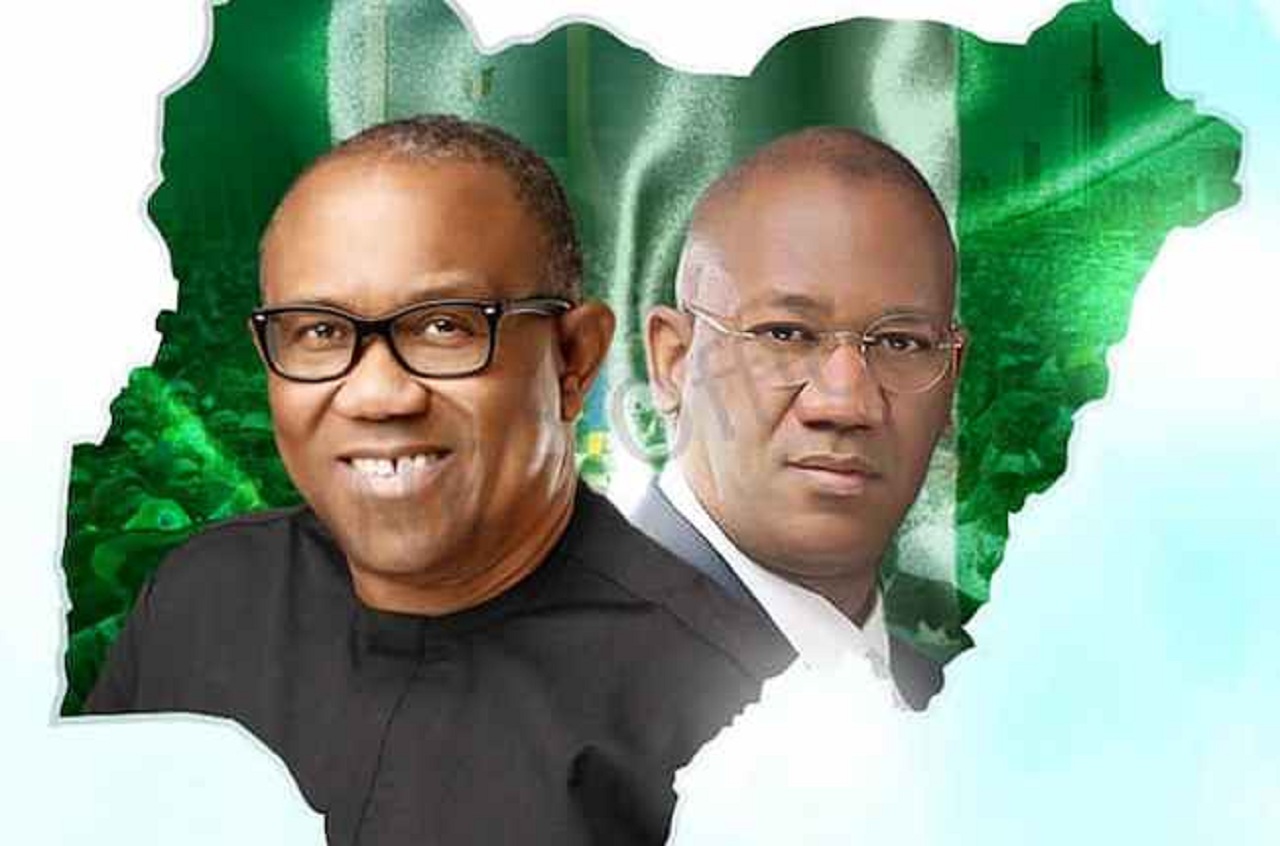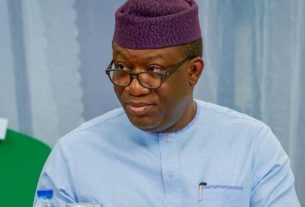After a long wait, speculations and disagreements among members of the Labour Party, LP, opposition parties and other vested interests, the party’s Presidential Candidate, Mr Peter Obi, has finally released his campaign manifesto.
Obi announced the release of the 62-page manifesto titled, ‘It’s POssible: Our Pact with Nigerians’, on his verified Twitter page on Sunday morning.
The former Anambra State Governor wrote: “I have the honour to present our 72-page Manifesto, titled, ‘It’s POssible: Our Pact with Nigerians.’ This Manifesto, its overarching and visionary policy planks, lays out our mission focus and mandate for securing, uniting and making Nigeria productive.”
According to the document, Obi’s campaign is anchored on seven thematic areas of security, production, institutional reforms, industrial revolution, infrastructural development, human capital development as well as a robust foreign policy.
Specifically Obi and his running mate, Yusuf Datti Baba-Ahmed, pledged to “secure and unite our dear nation, and manage our diversity such that no one is left behind in Nigeria.
“Move Nigeria from consumption to production and embark on comprehensive legal and institutional reforms and practicable restructuring measures, to fight corruption; ensure the enthronement of the rule of law, and decisively tackle all forms of corruption.”
The LP candidates also promised to “prioritise Human Capital Development through robust investments in STEM education, health, and infrastructural development, with emphasis on wealth creation, distribution and sustainable development.
“Improve access to finance, particularly to MSMEs, youths and women, to significantly reduce unemployment and insecurity.
“Ensure that in policy and practice, governance will be made more inclusive, cost-effective, transformative, and less transactional. No more sharing of the national wealth by a few,” among other promises.
He also promised to “Ensure that our diversity will be leveraged to give women and youths, the aged and persons with disabilities, an unfettered voice in governance, and a renewed sense of patriotism and faith in Nigeria.
While insisting that a new Nigeria is still possible, he said, “Our vision is a secure, united and prosperous Nigeria that works for everyone and that realizes the hope of black people of the world as a city on the hill.
“We will run a government of national unity, bringing together for the task at hand, all competent, honest, and diligent Nigerians, irrespective of their political affiliations.
“The new Nigeria we build will be truly ‘one nation bound in freedom, peace and unity” where “peace and justice shall reign.”
According to Obi, for long, the dream of a secure, united and prosperous Nigeria has been betrayed by those who lack the character and competence to achieve the dream.
He noted that at present, a new generation of Nigerian leadership has emerged, tested and tried, honest and dedicated, united in a common mission to reverse the current ugly trend of endemic poverty, insecurity, and create a better future for every Nigerian.
Obi expressed confidence that “The new Nigeria that we will build is a society where political power will no longer be used to serve the interest of the ruling class and subject the people to chronic poverty and deprivation.
The spokesperson of the Obi-Datti presidential campaign council, Yunusa Tanko, who reportedly confirmed the authenticity of the campaign document however, noted that the manifesto document may likely be released today.
“The principal has made a summary release of the document in the Business School meeting he held in Lagos, but the formal unveiling will be done by him at a later date,” Yunusa added.
Over the past few days, Obi had come under criticism in some quarters, especially among members of the All Progressives Congress (APC), for not having a manifesto.
In October, the LP presidential distanced himself from a manifesto attributed to him.
Obi had said he would personally release the LP manifesto to the public when it is ready.
In the manifesto released on Sunday, the former Anambra governor promised to move Nigeria from a consumption economy to a production-centred economy.
The LP presidential candidate said he would end banditry and insurgency if elected president.
“Restructure the polity through effective legal and institutional reforms to entrench the rule of law, aggressively fight corruption, reduce cost of governance, and establish an honest and efficient civil service,” the manifesto reads.
“Leapfrog Nigeria into the 4th Industrial Revolution (4IR) through the application of scientific and technological innovations to create a digital economy.
“Build expansive and world-class infrastructure for efficient powers supply, rail, road and air transportation, and pipeline network, through integrated public-private partnerships, and entrepreneurial public sector governance.
“Enhance the human capital of Nigerian youths for productivity and global competitiveness through investment in world-class scholarship and research, quality healthcare, and entrepreneurship education.
“Conduct an afro-centric diplomacy that protects the rights of Nigerian citizens abroad and advances the economic interests of Nigerians and Nigerian businesses in a changing world.”
Page 18 of the document itemized his economic plan founded on a shift from consumption to production by running a production-centred economy that is driven by an agrarian revolution and export-oriented industrialization.
The Head of Media of the Presidential Campaign Council of the party, Diran Onifade, told Channels Television that the candidate, Peter Obi, was part of those who produced the manifesto, unlike other parties where the candidates have no idea of the contents of such document.
In the 62-page manifesto, the Peter Obi campaign anchored it on seven thematic areas. These are security, production, institutional reforms, the industrial revolution, infrastructural development, human capital development, and robust foreign policy.
A further perusal of the document showed that Obi and his running mate, Yusuf Datti-Ahmed, promised to among others:
“Secure and unite our dear nation, and manage our diversity such that no one is left behind in Nigeria.
“Move Nigeria from consumption to production and embark on comprehensive legal and institutional reforms and practicable restructuring measures, to fight corruption; ensure the enthronement of the rule of law, and decisively tackle all forms of corruption.”
They also pledged to “prioritize Human Capital Development through robust investments in STEM education, health, and infrastructural development, with emphasis on wealth creation, distribution, and sustainable development.
“Improve access to finance, particularly to MSMEs, youths, and women, to significantly reduce unemployment and insecurity.
“Ensure that in policy and practice, governance will be made more inclusive, cost-effective, transformative, and less transactional. No more sharing of the national wealth by a few.”
